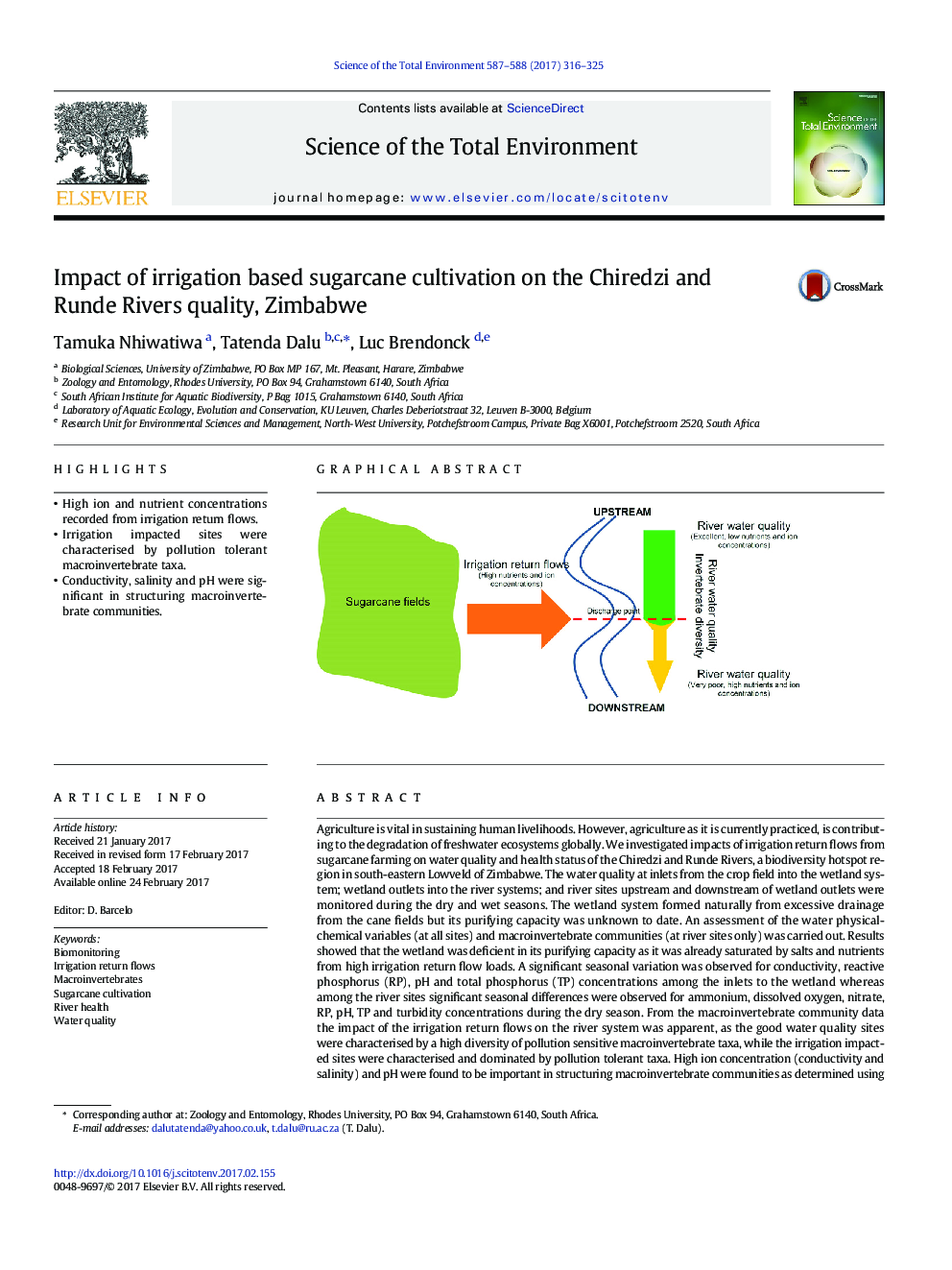| کد مقاله | کد نشریه | سال انتشار | مقاله انگلیسی | نسخه تمام متن |
|---|---|---|---|---|
| 5751588 | 1619706 | 2017 | 10 صفحه PDF | دانلود رایگان |
- High ion and nutrient concentrations recorded from irrigation return flows.
- Irrigation impacted sites were characterised by pollution tolerant macroinvertebrate taxa.
- Conductivity, salinity and pH were significant in structuring macroinvertebrate communities.
Agriculture is vital in sustaining human livelihoods. However, agriculture as it is currently practiced, is contributing to the degradation of freshwater ecosystems globally. We investigated impacts of irrigation return flows from sugarcane farming on water quality and health status of the Chiredzi and Runde Rivers, a biodiversity hotspot region in south-eastern Lowveld of Zimbabwe. The water quality at inlets from the crop field into the wetland system; wetland outlets into the river systems; and river sites upstream and downstream of wetland outlets were monitored during the dry and wet seasons. The wetland system formed naturally from excessive drainage from the cane fields but its purifying capacity was unknown to date. An assessment of the water physical-chemical variables (at all sites) and macroinvertebrate communities (at river sites only) was carried out. Results showed that the wetland was deficient in its purifying capacity as it was already saturated by salts and nutrients from high irrigation return flow loads. A significant seasonal variation was observed for conductivity, reactive phosphorus (RP), pH and total phosphorus (TP) concentrations among the inlets to the wetland whereas among the river sites significant seasonal differences were observed for ammonium, dissolved oxygen, nitrate, RP, pH, TP and turbidity concentrations during the dry season. From the macroinvertebrate community data the impact of the irrigation return flows on the river system was apparent, as the good water quality sites were characterised by a high diversity of pollution sensitive macroinvertebrate taxa, while the irrigation impacted sites were characterised and dominated by pollution tolerant taxa. High ion concentration (conductivity and salinity) and pH were found to be important in structuring macroinvertebrate communities as determined using multivariate analysis in the river system. In conclusion, the river water quality was significantly impacted by irrigation return flows and this greatly reduced the ecological health as highlighted by low macroinvertebrate diversity and increases in physical-chemical variables.
207
Journal: Science of The Total Environment - Volumes 587â588, 1 June 2017, Pages 316-325
